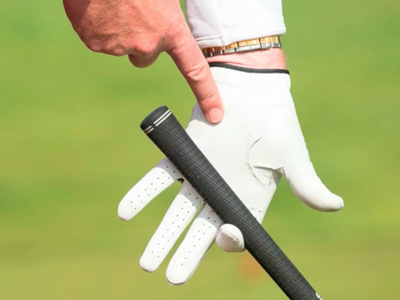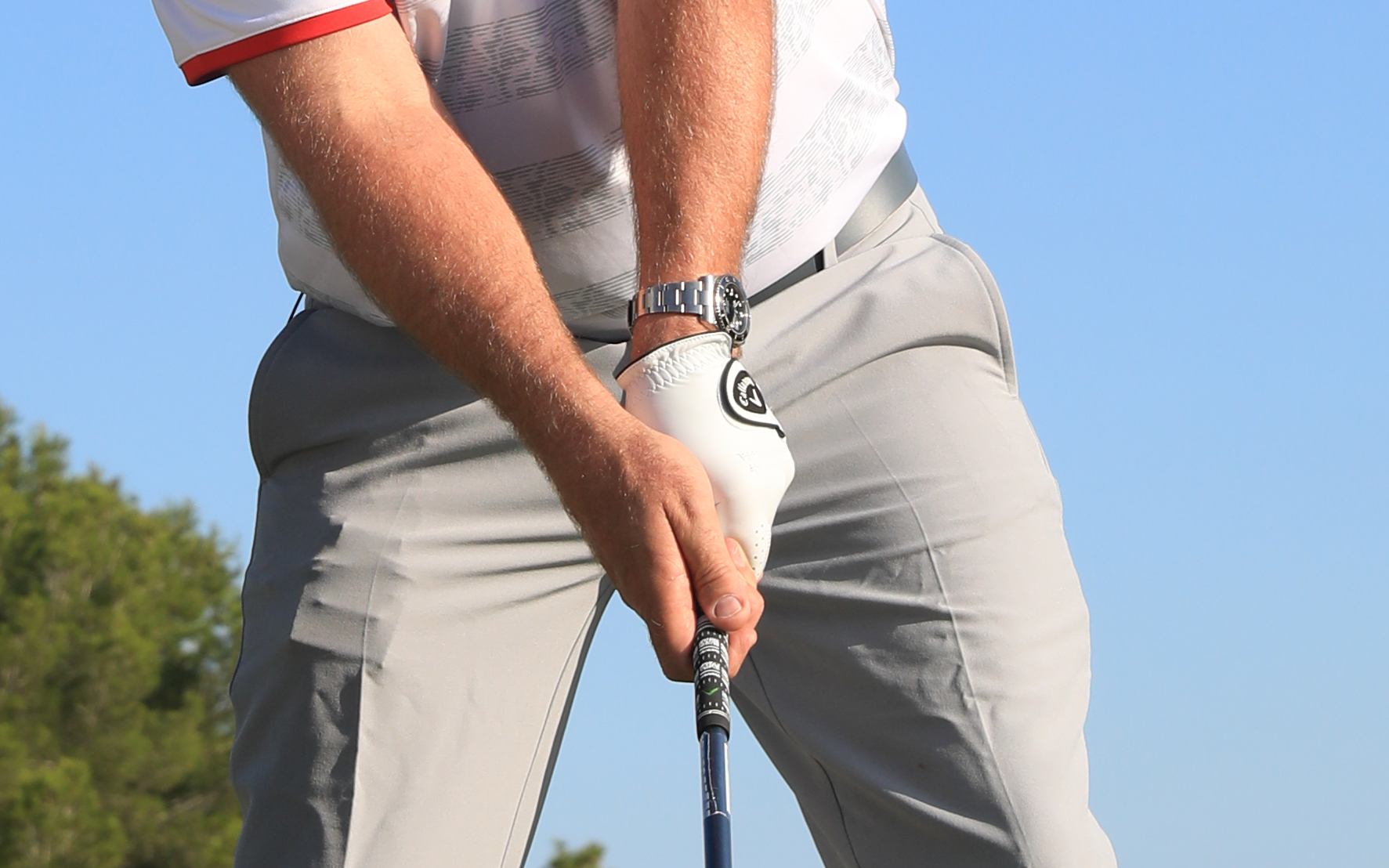How Do You Grip A Golf Club?
'How do you grip a golf club?' is a question that so many beginners ask when taking up the game, but a quick refresh is also useful for golfers of all abilities


Finding the perfect golf grip will instantly improve your ball striking, but it's easy to allow bad habits to creep in if you lose focus of this key fundamental.
Some of the most common amateur faults in golf are linked to a strong or weak golf grip, so investing some time to get this aspect of the golf swing set-up right is well worth the effort.
In this video and article, PGA Pro and Golf Monthly Top 50 Coach Paul Foston explains everything you need to know...
How Do You Grip A Golf Club?
The average golfer will grip a golf club anywhere between 70 to 100 times per round, but getting this aspect right is going to save you plenty of shots. The correct grip enables you to deliver the club square at impact, allowing you to find your intended target more effectively.
Start by gripping the club in the palm and fingers of your left hand. For the ideal neutral grip, your left thumb should be positioned just to the right of centre of the shaft. From there, attach your right hand by gripping with the middle two fingers and forefinger. Your right thumb should sit just to the left of centre of the gip.
If you have a truly neutral golf grip you should be able to see two knuckles on each hand at address. If you can’t, your grip will either be too strong or too weak, causing you to make contact with the ball with either a closed or open clubface. When asking how do you grip a golf club, use these checkpoints to make sure you are doing it correctly.
If you can team up a neutral grip with the perfect ball position for every club, you should be able to hit shots sweetly that fly straight. Who doesn't want to do that?!
Subscribe to the Golf Monthly newsletter to stay up to date with all the latest tour news, equipment news, reviews, head-to-heads and buyer’s guides from our team of experienced experts.

Golfers often hold the club too far up the grip, which results in a loss of control
How far up the grip should your hands be?
One common error I often see among amateur golfers is holding the club too far up the grip. This results in a loss of control and also causes shots to come out of the heel of the club - in fact, it can be one of the main golf shank causes. You should look to leave an inch between the top of your grip and the end of the club. On many grips, there’s a mark where your bottom thumb should go. This is a good marker for where your grip should be.
What is the right grip pressure?
If you can feel tension in your forearms at address, then you’re gripping the club too tightly. This is one of the most common mistakes players make because, as they search for power and control, they hold the club even tighter. But the opposite rules apply here. A tight grip will prevent you from completing a full shoulder turn. It’s something that happens to all standards of golfer, particularly when playing under pressure.
Focus on soft hands - a grip pressure of about 5/10 is right. It should be tight enough to ensure you don't let go without being too tight and disrupting your fluidity. Don't forget that a good rhythm is an essential element behind how to swing a golf club. A good tip is to waggle the club at address, as this action helps to alleviate tension.
Grip size
When asking how do you grip a golf club it is worth pointing out that having the wrong size grip immediately puts you on the back foot. An easy way of checking your grip size is to grip the club with just your glove hand.
Take a look at where the ends of your fingers are relative to your palm. They should be lightly touching each other. If your fingers are digging into your palm, your grips are too thin. If they aren’t touching at all, your grips are too thick. The incorrect grip size will hold you back when trying to deliver the club squarely at impact. This could be all you need to help fix your slice.

Location: Paul Foston Golf Academy
Paul has worked with a number of Tour professionals over the years, and is proud to have successfully coached over 40,000 students. In 2005, he set out to design his own academy with a ‘world class’ coaching infrastructure of technical advancement and a tailor made short game layout to practice every real life challenge experienced on course.
Greatest success story:
Fulfilling the dreams of five international players - Paul Way, Mark Roe, Craig Parry, Jamie Spence and Peter Mitchell, taking them to European Tour victories and one to Ryder Cup success.
Teaching philosophy:
Golf is one of the most challenging sports to accomplish. To play well consistently requires you to invest time in lessons, practice and play in equal measure; this will give a solid foundation and enable you to develop skills across the whole spectrum of the game. Identifying an individual’s learning style is key to coaching and effective communication. My imaginative mind and use of analogy is a creative, easily understandable method to convey instruction and simplify technique.
Significant teaching influences:
I have amassed a great body of knowledge by researching the world’s best players and their unique ability to play golf at the highest level. I have also kept pace with technology and golf equipment advancements. These findings have given me a deep understanding of swing dynamics and techniques which have been incorporated into my classic coaching style.